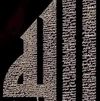Form Meaning and Function - Mega goal 3 - ثالث ثانوي
Part 1
Unit1: Two Is Better Than One
Unit2: influential people
Unit3: What Will They Think of Next
Unit4: The World of TV
Unit5: Do You Really Need It
Unit6: The Gender Divide
Part 2
unit7: Everyone Makes Mistakes
unit8: Against the Odds
unit9: Beauty Is Only Skin Deep
unit10: They Said, We Said
unit11: Express Yourself
unit12: Lost and Found
Part 1
Part 2
O 1 Two Is Better Than One 11 Form, Meaning and Function Simple Present Tense Use the simple present tense for facts and things that are true in general. For animals in the wild, each day is a struggle to survive. Use the simple present tense to talk about future timetables or schedules. My flight from Dubai to Bahrain leaves at 8:10 A.M. tomorrow. I then fly to Saudi Arabia and arrive in Riyadh at eleven o'clock. Use the present simple with exclamations with Here...! and There...!: Q: Can I have the check, please? A: Of course, Sir. Here you are! Q: Dad, can I borrow your cell phone, please? A: I suppose so. Here you go! A: Ah! There they are! A: Here she comes! Q: Where are my glasses? Q: Where is Nathalie? OPENS AT 9A. M. CLOSES AT 6P.M. رابط الدرس الر www.ien.edu.sa Simple Present versus Present Progressive Use the simple present tense to talk about habits and routine, and use the present progressive for actions occurring now or for a temporary situation. Badr usually eats takeout, but today he is cooking dinner. Use the present progressive for changing or developing situations. More and more students are sharing apartments to save money while they study. Use the present progressive with always, continually, constantly to describe an ongoing annoying situation or habit. He is always asking his brother to lend him money. Note: Some verbs are not often used in the progressive form: believe, think (opinion), know, remember, like, hate, want, prefer, see, hear, feel, seem, appear, have, belong, own. A. Read the telephone conversation between Badr and his brother, Fahad. Complete the conversation with the correct form of the word in the parentheses. Use the simple present or present progressive. Fahad: Hi Badr. How are (1. be) things in New York? Badr: | To tell you the truth, Fahad, not so good. It's my flatmate, Adnan. I was really excited about us sharing a flat but he (2. not/do) any chores. One bathroom (3. be) spotless because He the flat. I (4. clean) it but the other one is very dirty. The rest of the apartment is very untidy. always (5. leave) his dirty dishes around constantly (6. clean up). We agreed to take it in turns to do the laundry but he is always busy. I (7. do) the laundry every week. Also, about the cooking ... B. Complete the conversation with your own ideas. Compare with a partner. وزارة التعليم Ministry of Sucation 2024-1446 MG_03_COMBO_TEXT_2024.indb 16 H 30/4/24 3:03 AM

O Words Connected with Museums and Galleries Some words we commonly associate with different types of museums and galleries are: Archaeological Technological National history culture antiques pottery jewelry exhibitions ruins space robots antiques manuscripts science seminars documents state-of-the-art 3-D digital cinema showing scientific documentaries educational books informative exhibits interactive displays Expressing Enthusiasm with Intensifiers and Adjectives We use the intensifiers really, very, absolutely and quite with adjectives to express our enthusiasm with something. There are two kinds of adjectives: gradable and non-gradable. Gradable adjectives can be measured in degrees, such as size, age, quality etc. Non-gradable adjectives cannot be measured like this. We use certain intensifiers with each group of adjectives. Gradable Adjectives expensive old beautiful very really important good extremely interesting frightening small big absolutely really Non-Gradable Adjectives priceless ancient stunning crucial amazing quite fascinating terrifying tiny massive Note: The intensifier really can be used with both gradable and non-gradable adjectives. C. Look at the information about the National Museum of Saudi Arabia. Write sentences using the prompts. Use the present simple tense. Address: Prices: Opening hours: Exhibits: King Saud Rd, Riyadh adult/child/student SAR 10/free/free men & schools 9 A.M.-noon Sun, Mon, Wed, Thu & 3:30-9:30 P.M. Tue, women & schools 9 A.M.-noon Tue, families 3:30-9:30 P.M. Sun, Mon & Wed-Fri manuscripts, documents, antiques 1. visiting times for families 2. visiting times for women 3. visiting times for school groups 4. ticket cost for students 5. ticket cost for adult 6. exhibits and attractions D. Make some notes about your favorite museum or gallery. Work with a partner and using your notes, tell your partner about it. Use the present simple tense, intensifiers and adjectives. وزارة التعليم Ministry of Education 2024-1446 MG_03_COMBO_TEXT_2024.indb 17 17 30/4/24 3:03 AM




 0
0 
















